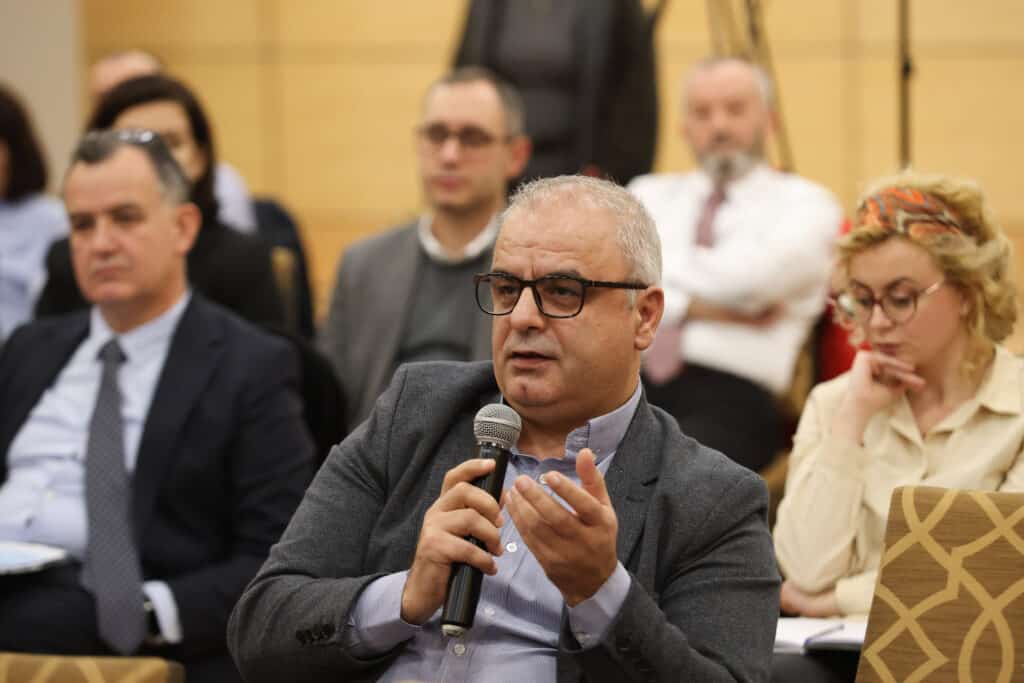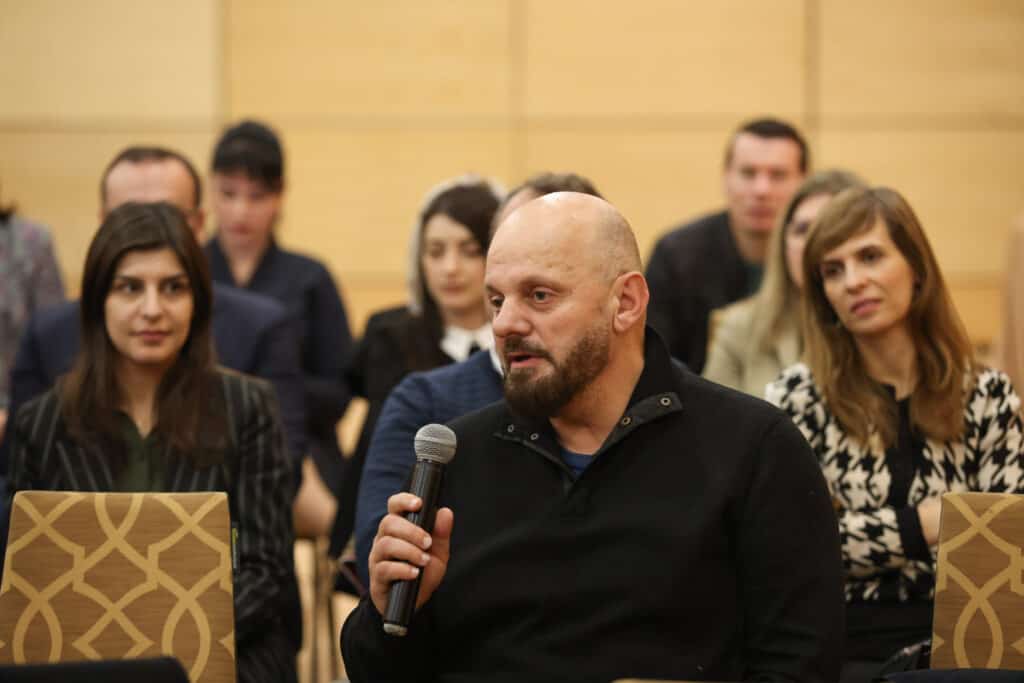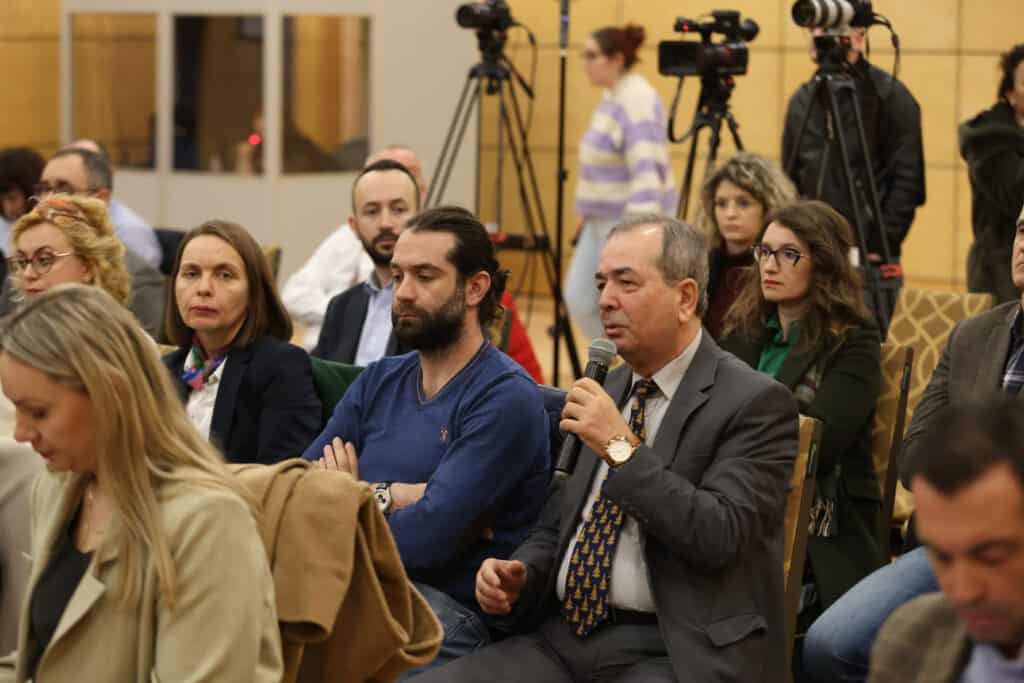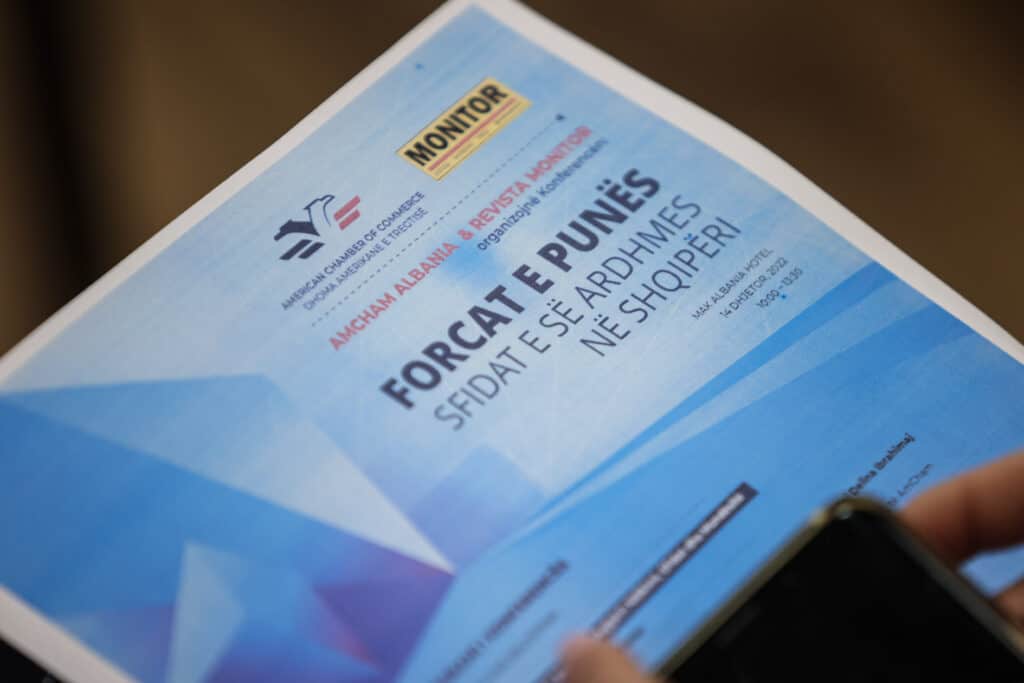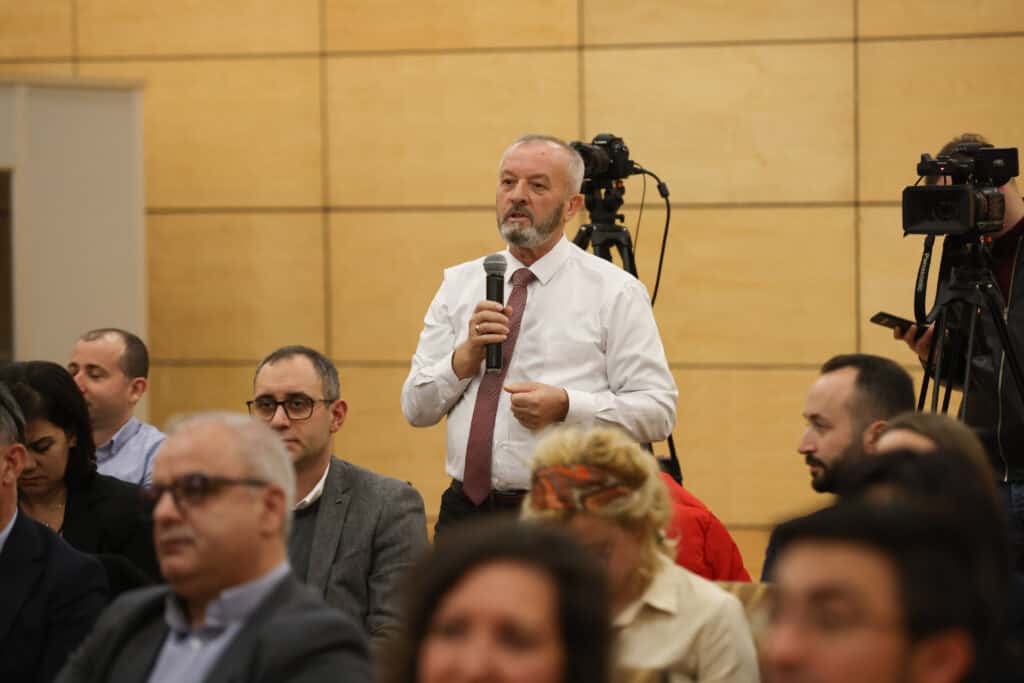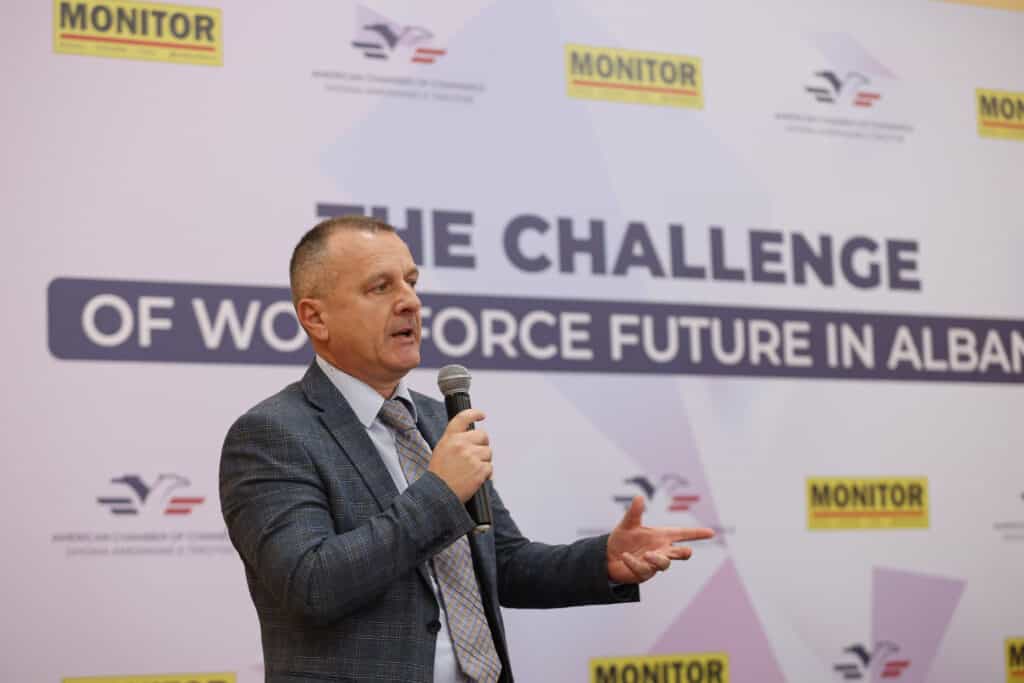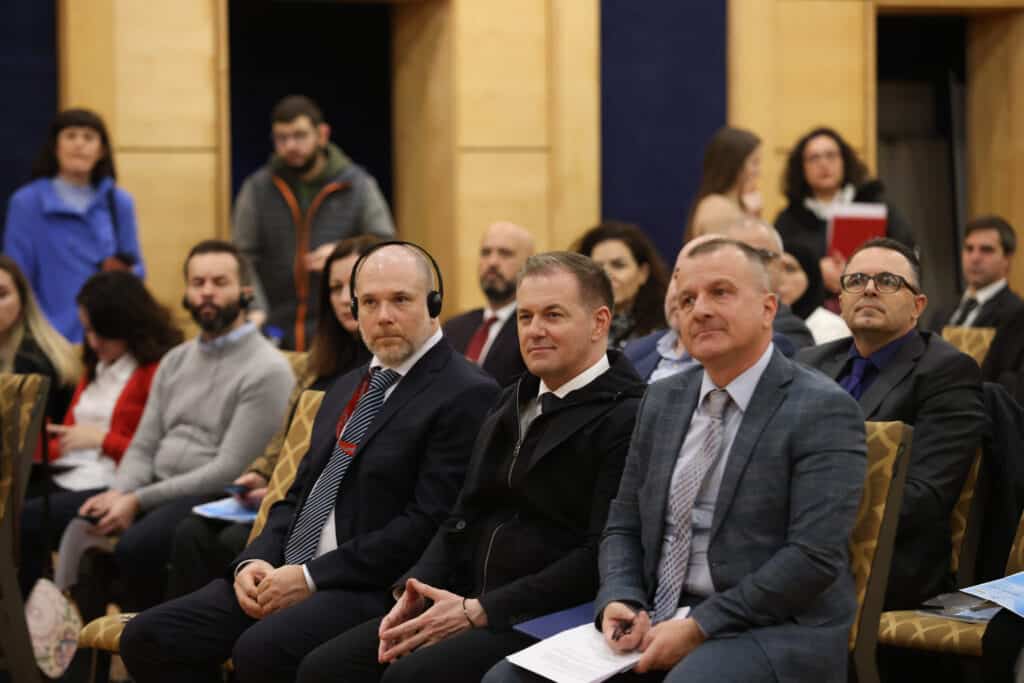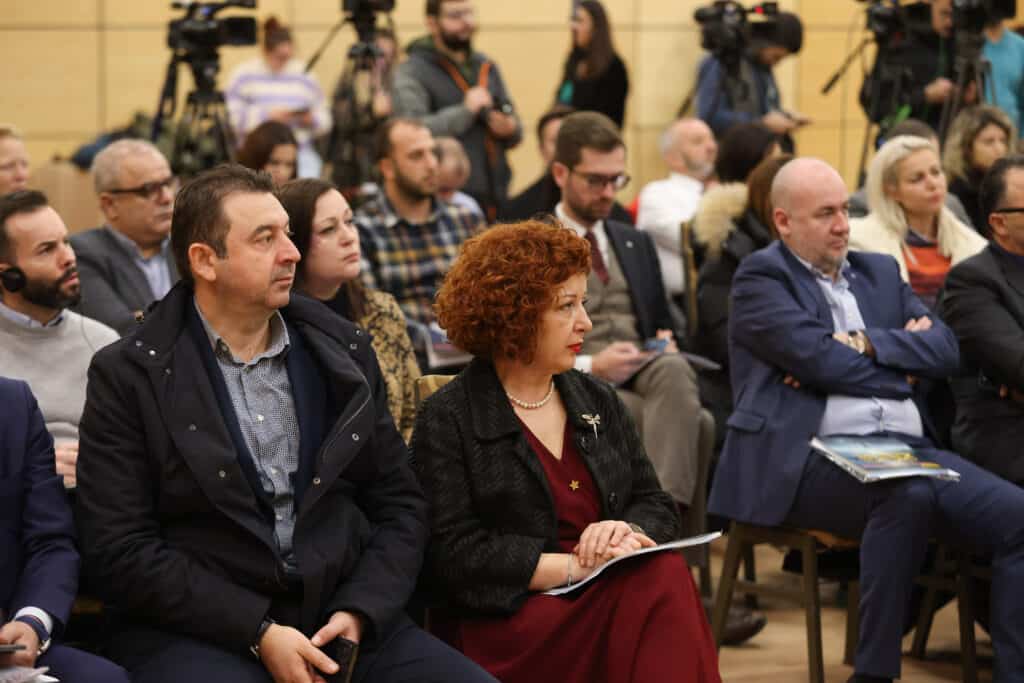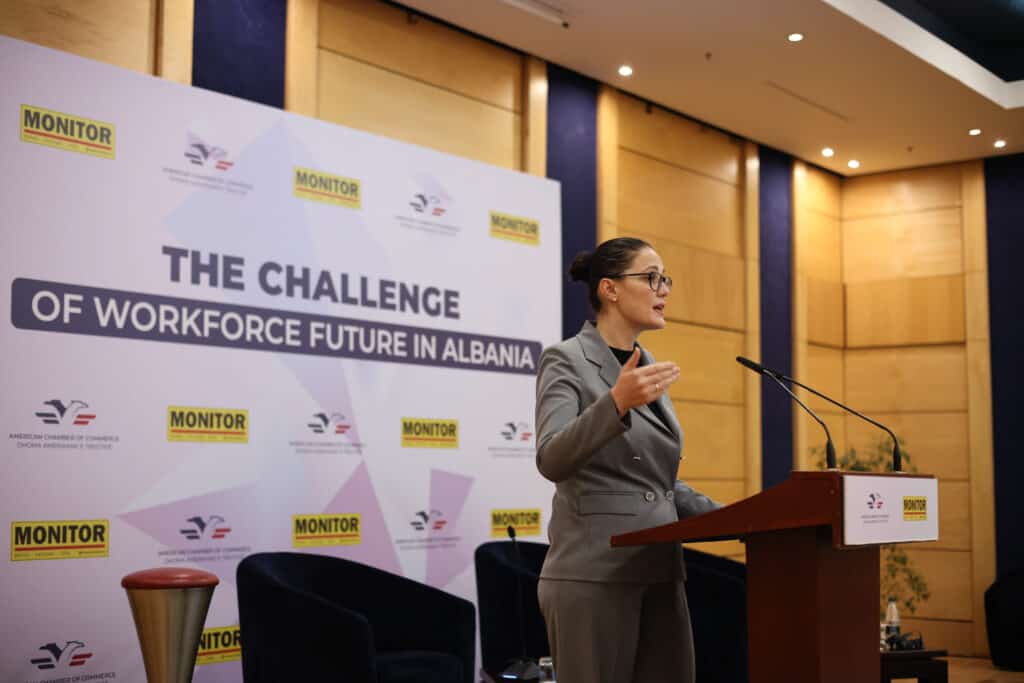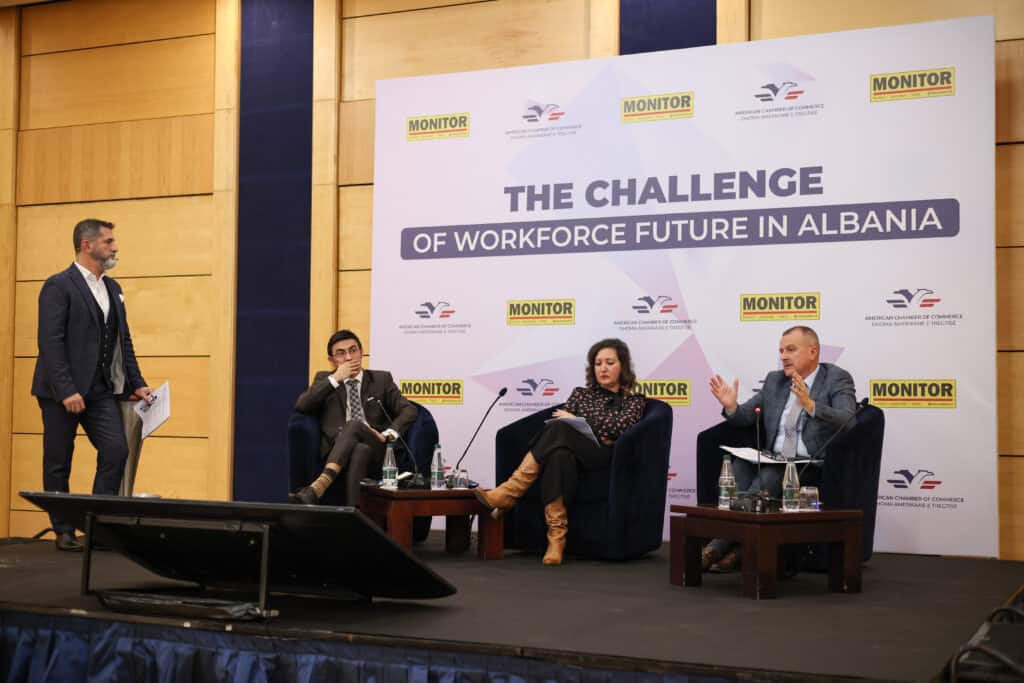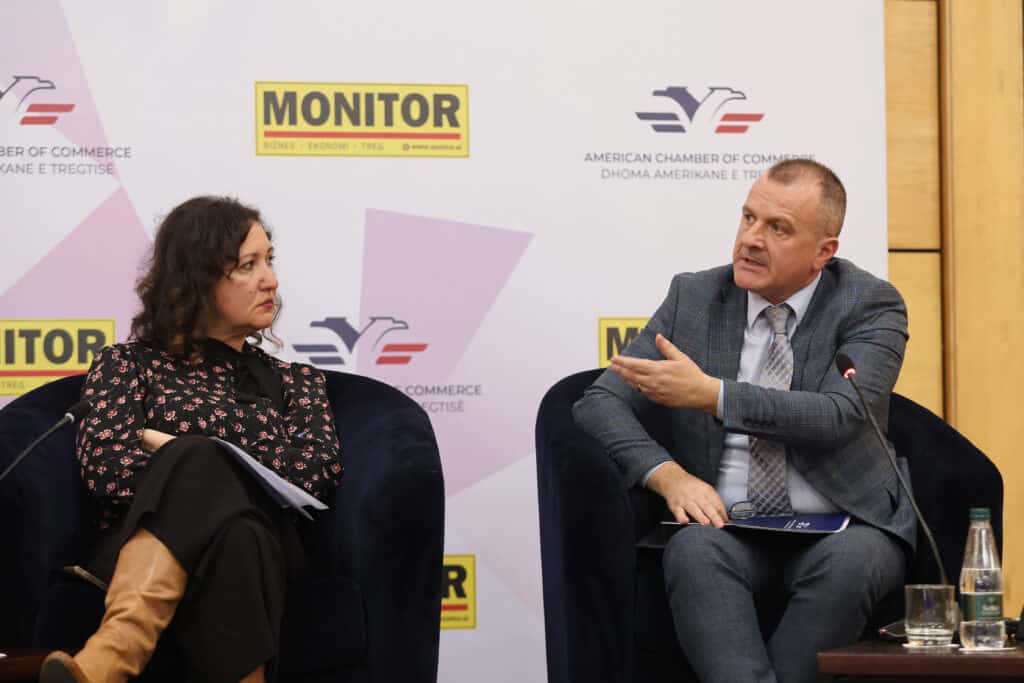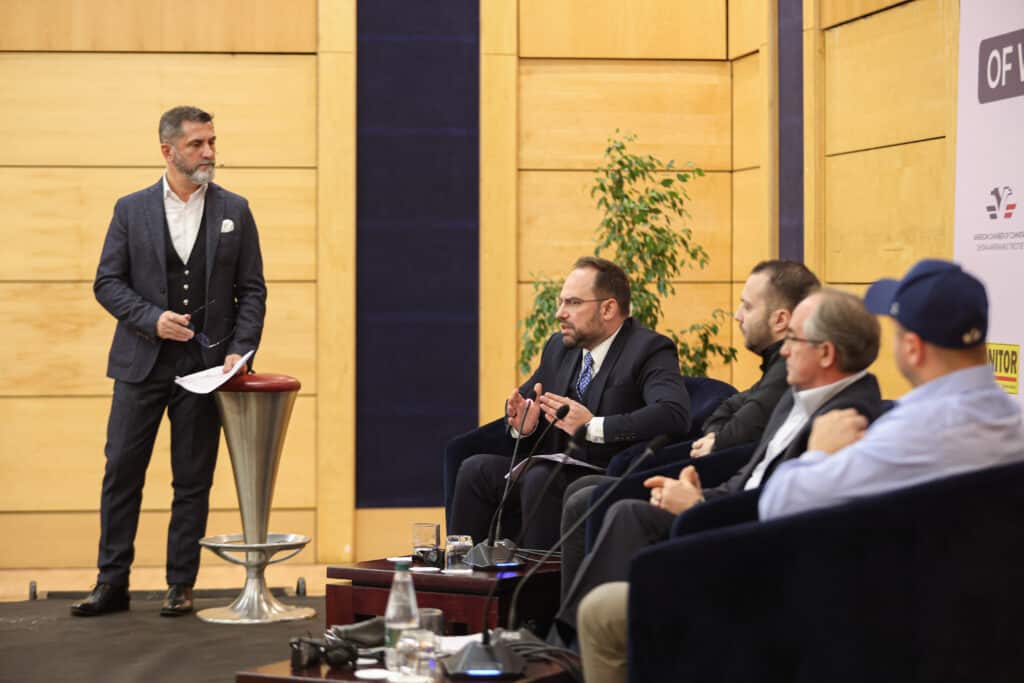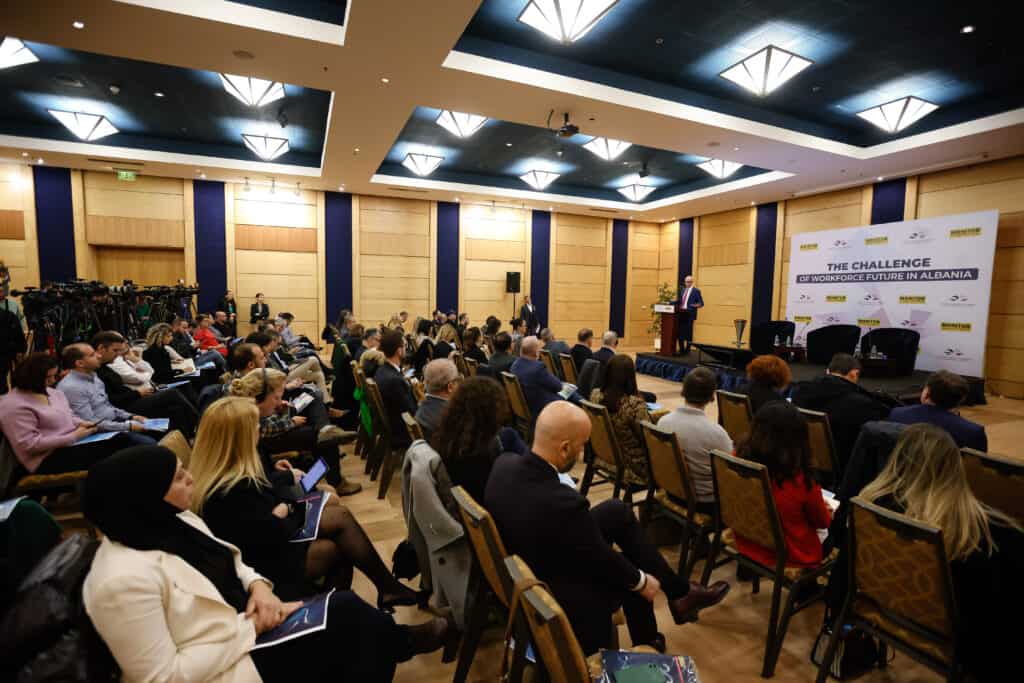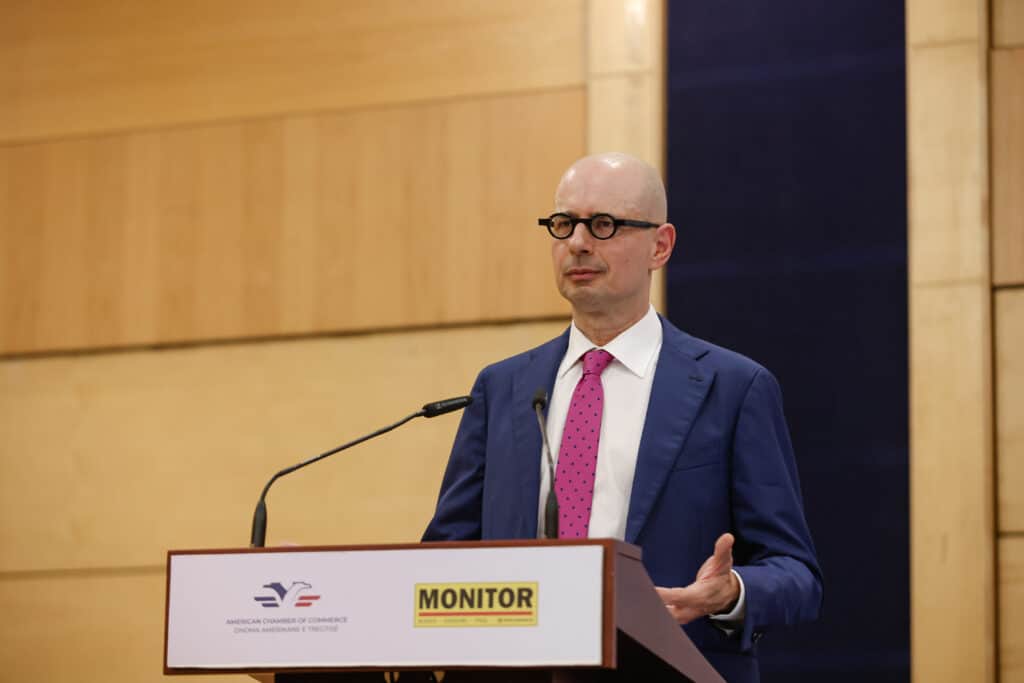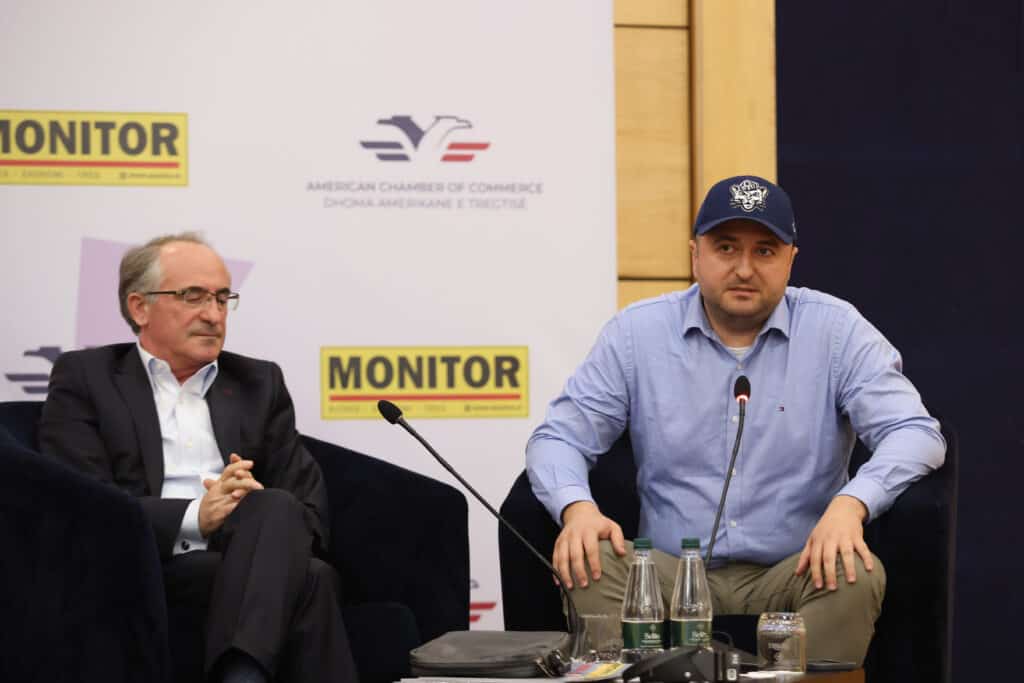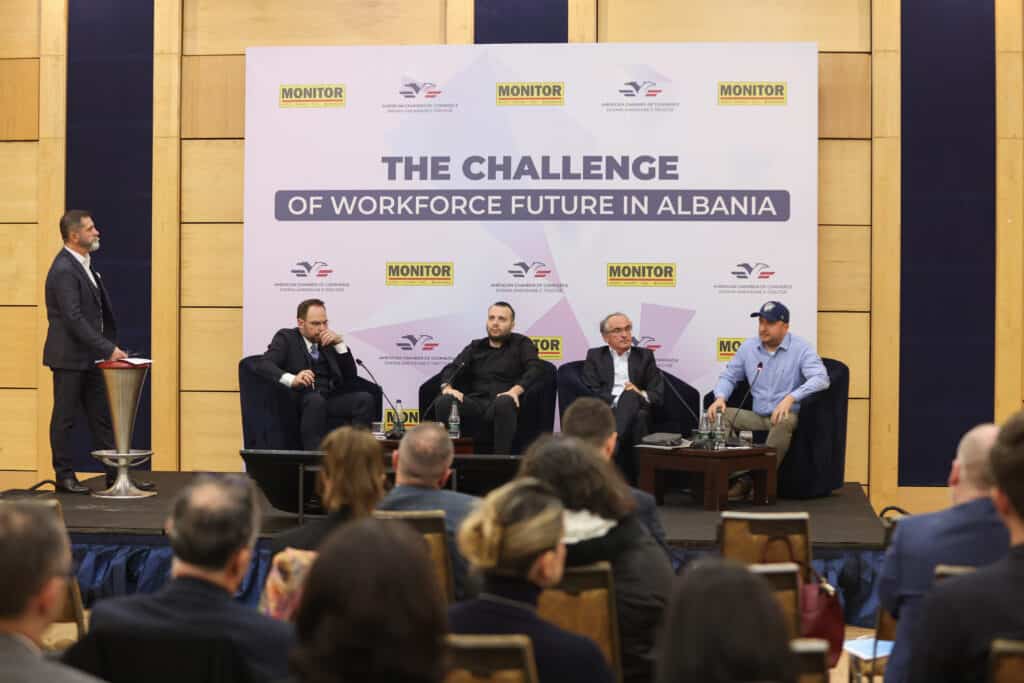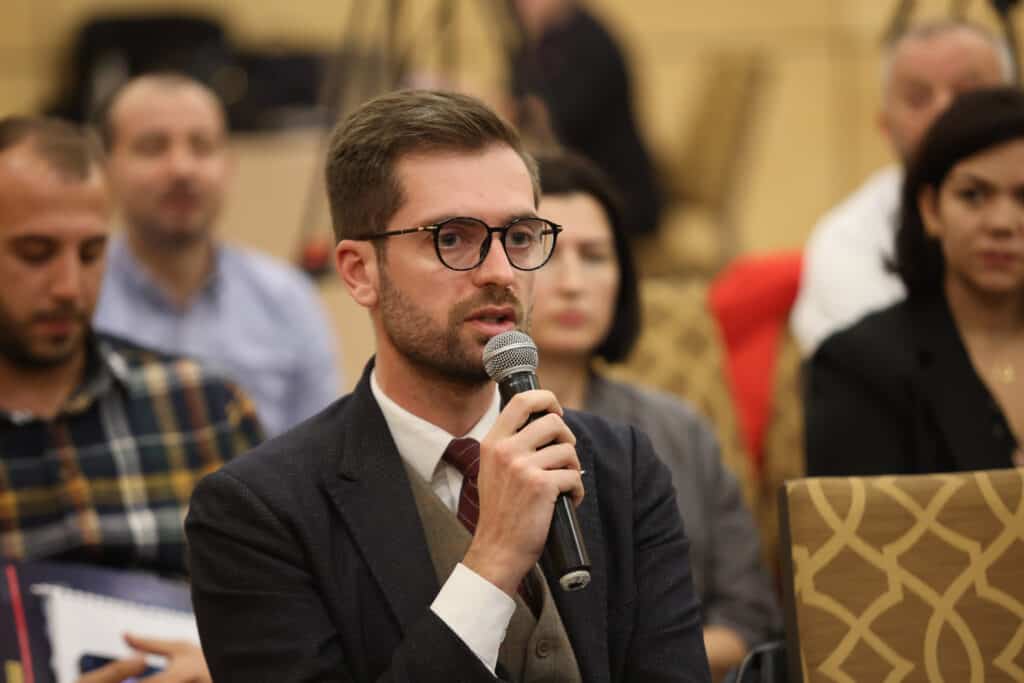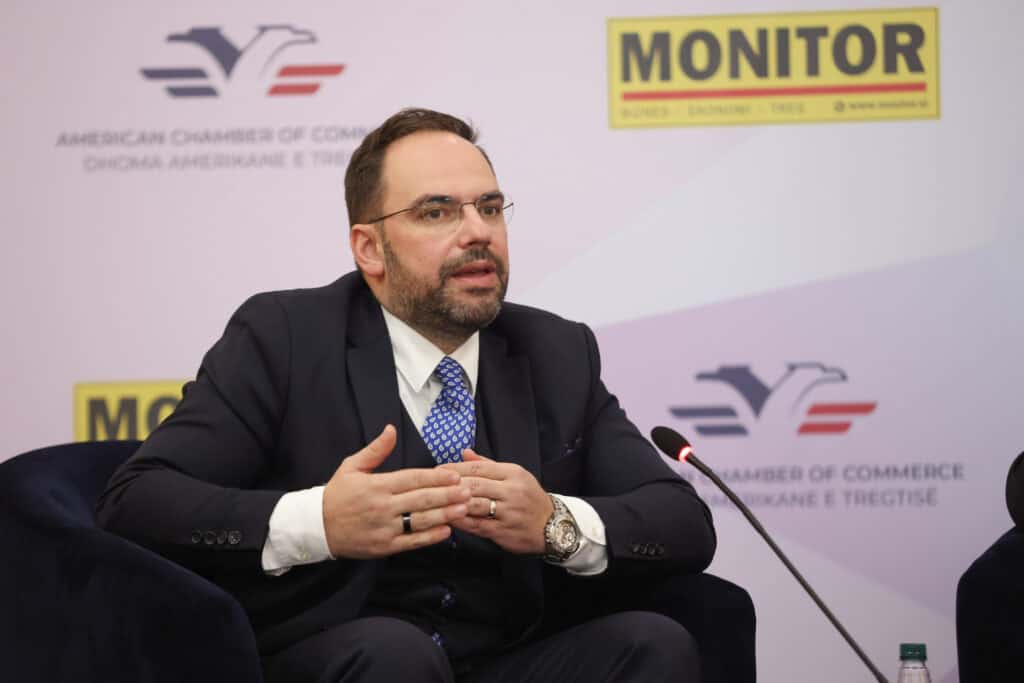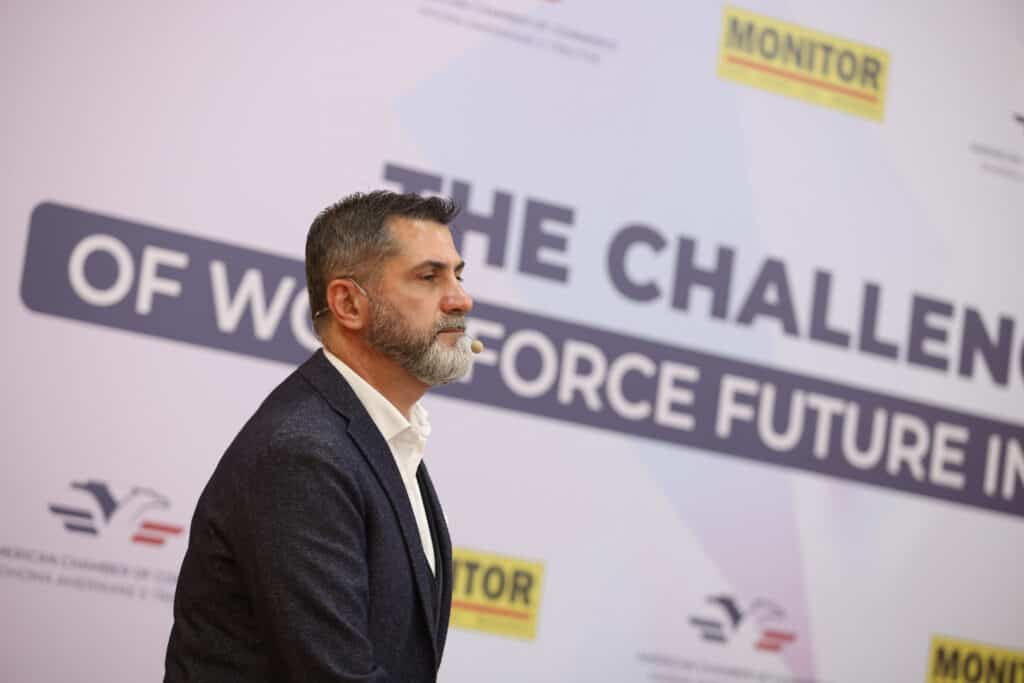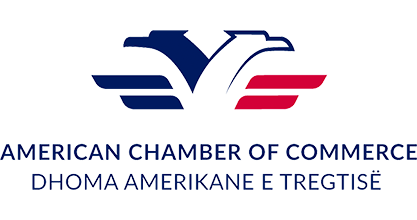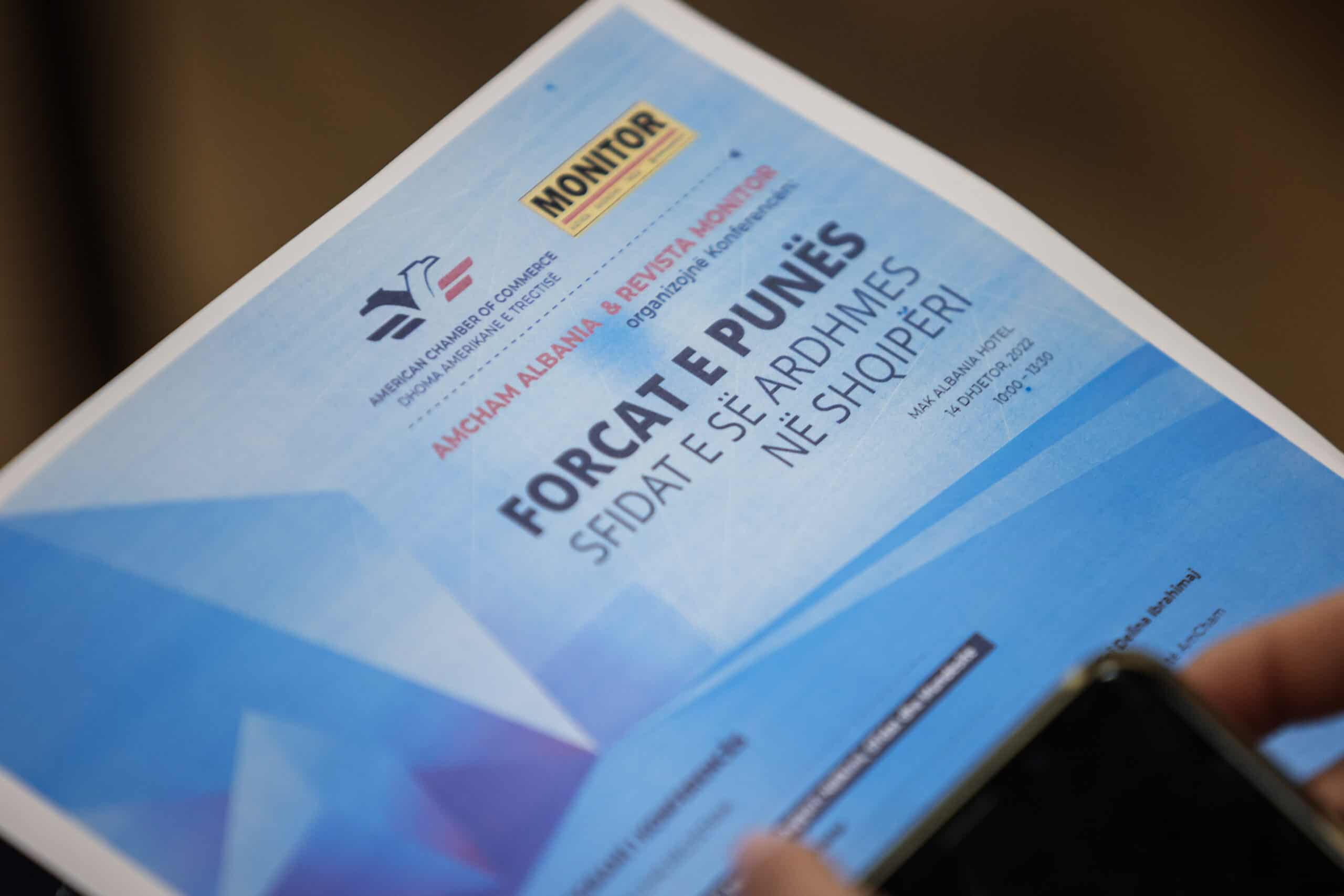AmCham presented its Business Index 2021 results at the conference, with the difficulty of finding qualified staff being the worst performing indicator.
In 2021, member businesses of the American Chamber of Commerce in Albania saw a lack of a qualified labor force as the most worrying indicator. It is the first time in a decade, since AmCham started publishing the Business Index, that this indicator has jumped to the top of the worry list, as the trend of staff shortages is not just affecting business owners but has become a top topic of discussion among economic experts, business organizations and the media.
A conference organized by AmCham Albania and Monitor magazine brought together experts, entrepreneurs, academics and government representatives to discuss the worrying findings of the index, but also, more importantly, to propose solutions and create hope for the future.
“We must work together for a real motivation, to build an economic perspective in Albania, and this is everyone’s duty. Albania has the chance of European integration, and we must turn this into potential. It is very important to make reforms. AmCham has already drawn up the Investment Agenda, but it must be combined with state policies,” AmCham President Enio Jaco said.
Presenting the Business Index 2021, AmCham Executive Director Neritan Mullaj said there had been an improvement in the index compared to 2020, by 3.77 points. “The index has a kind of stability at the level of 40 points out of a possible 100. It is noticeable that during the 10 years that the index has been published it has never exceeded the threshold of 50 points, so there has not been a significant change in the improvement of the business environment,” Mullaj said.
In her remarks at the conference, Finance and Economy Minister Delina Ibrahimaj said the government and businesses should work together to reflect on the labor market and establish appropriate instruments to help. “The challenges of the labor market are comprehensive. To address them, the entire economy must be analyzed, all the weak points must be analyzed, to better prepare for the future. Today, we are in a very challenging situation,” Minister Ibrahimaj said.
Endrit Yzeiraj, an economic advisor at Monitor magazine, provided a view of economic development and key points of economic growth and slowdown as well as the related influencing factors. The increase in the level of lending by banks and foreign investors were factors that influenced economic growth. But on the other hand, the main industries in the country were not sophisticated enough to expand with their products, thus not ensuring a sustainable growth. A new model is needed, oriented toward improvements in technology, knowledge and human capital, he noted.
Business and academia come together to propose solutions
A second session of the conference focused on market opportunities and solutions for the private and public sectors. The panel included Roden Pajaj, chairman of the AmCham Labor and Ethics Committee as well as a well-known human resources expert; Aleksander Risilia, head of Ritech International AG; Selami Xhepa, president of the European University of Tirana; as well as Mirgen Hoxha, administrator of Motomtech, an IT and software development company.
The panel discussed and analyzed all the elements that have led to employees leaving Albania, causing a vacuum in the labor market. In his remarks, Pajaj mentioned several sectors that are particularly affected by the trend — garment and shoe manufacturers, agriculture, the financial sector, and others. He emphasized that the situation is not surprising and businesses should urgently change their policies related to human capital development if they want to improve the situation.
It was an opinion echoed by Xhepa, the academic, who described the phenomenon as a failure of all actors and added that changes need to be made to create a sustainable model that is based not just on action by businesses but also by supportive economic policies and incentives by the government.
Speaking about the education angle, Risilia said that businesses so far have tried to train the workforce according to their needs, but in fact it has become necessary that businesses should look at it more as a continuous workforce education process.
In the same line of thought, Hoxha provided his company’s experience in diversifying training and shifting orientations of staff by adapting their capacities and talents to the available work positions.
What the Business Index 2021 tells us
The AmCham Business Index, which measures perceptions of the business climate by gathering the opinions of AmCham Albania members, marked an improvement, to 41.4 points, from 37.66 points during the previous pandemic year.
The news this year is that qualified labor is hard to find, which has made that the top concern for businesses — for the first time ever. That indicator received the lowest rating of all, at 24.47 points out of the possible 100. The high level of emigration is reducing the opportunities for businesses to hire professional experts, hurting the performance of many companies. As a result, finding qualified local staff in 2021 is reported to be difficult or very difficult by 78.7 percent of companies surveyed.
In addition to the labor shortage, the biggest business problems are related to monopolies and unfair competition, the high level of informality in the economy as well as government bureaucracy and corruption.
It is also worth mentioning indicators that have earned positive attention by index respondents, crossing the 50-point threshold. The Energy indicator was assessed at 66.10 points and reflects the security that businesses felt in having access to energy resources in 2021. Relations with Customs and Taxes were also positive, assessed at 62.15 and 58.98 points respectively. Order and Security in the country also received a rating of 57.02 points and Private Property was at 50.68 points. The rest of the indicators, most of which saw slight improvements, continue to remain below the average threshold.
